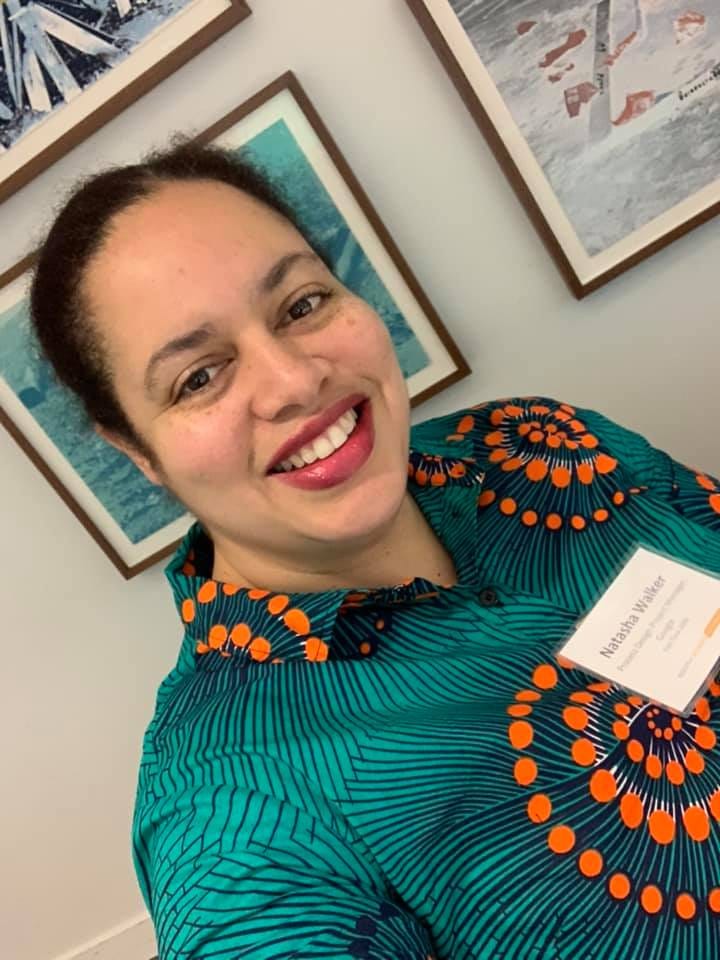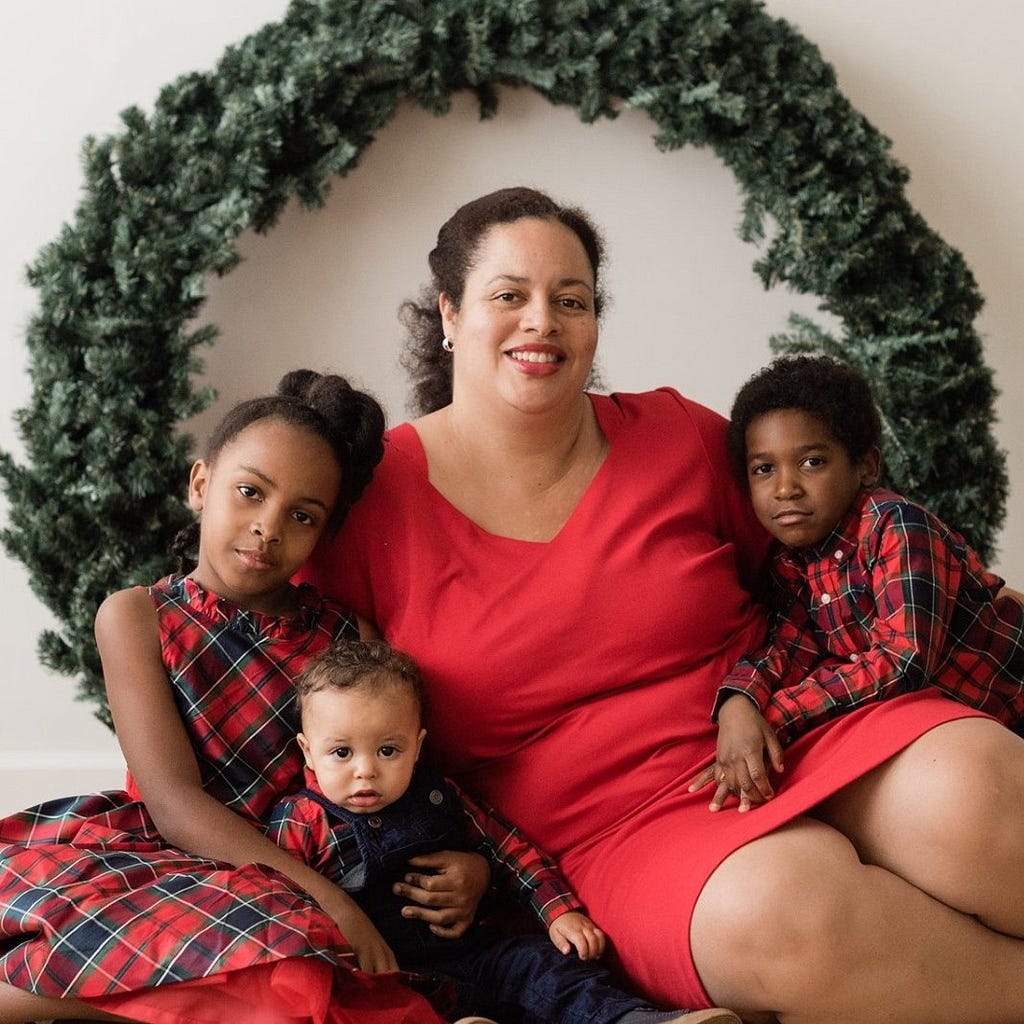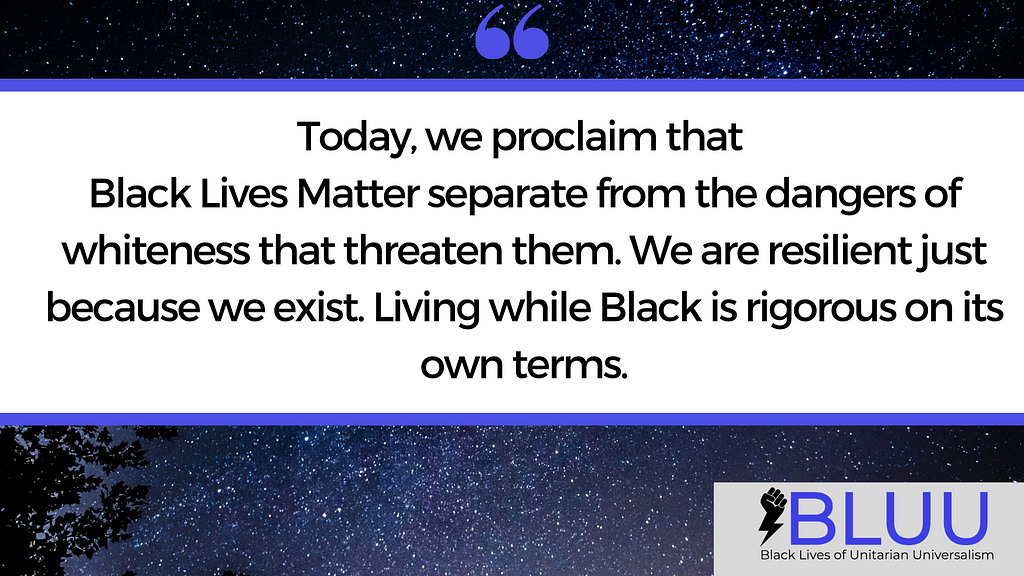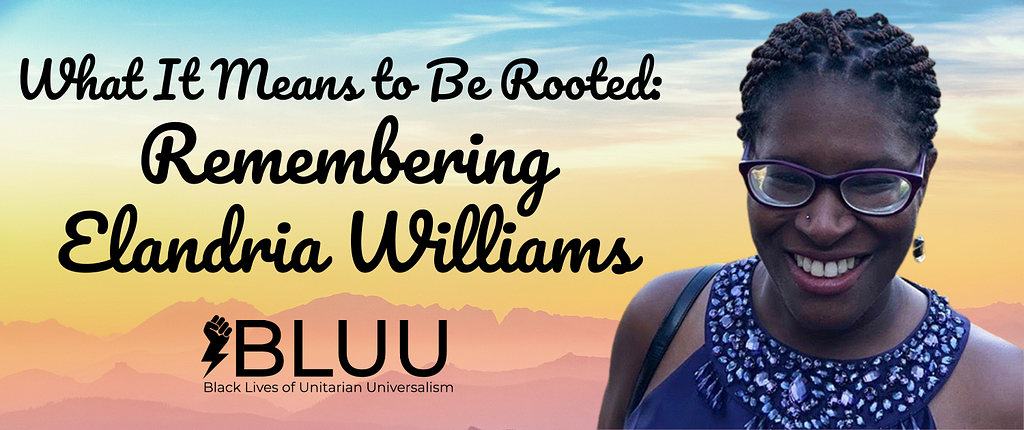In spring 2021, BLUU launched a survey for all Black folks who are in community with us. We wanted to know why our community engages with us, when BLUU’s work is most impactful, and where we have some opportunities for growth.
Sixty-three people responded to the survey and gave us in-depth feedback about their experiences with and hopes for BLUU. Those who responded represented many ages, sexual orientations, regions, and genders.
While we released this survey last year, we still believe these survey results can teach us about the current state of what our community needs. We took a programmatic pause shortly after the survey was released to do organizational restructure work. (Most of BLUU’s programming is still on hiatus.)
Here is a summary of our survey results and how they impact our current restructure process.
Why does our community need BLUU?
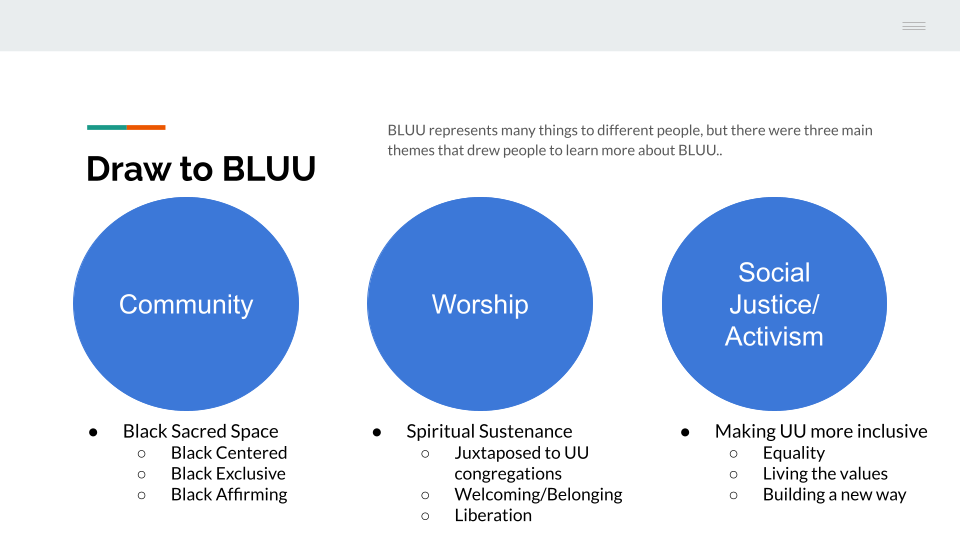
Based on survey results, there are three main reasons Black folks are a part of BLUU’s community. BLUU community members are seeking community, worship, and connection to social justice/activism.
It is important to BLUU community members that BLUU offers Black sacred space, or space specifically for and centering the voices of Black people. People who had an interest in BLUU social justice/activism had a particular interest in making Unitarian Universalism more inclusive.
More than 50% of respondents reported that they had no unmet needs from BLUU. For those who would like additional offerings from BLUU, the requests spanned across three main categories: Spirituality, Localization, and Additional Programming.
What is BLUU doing well?
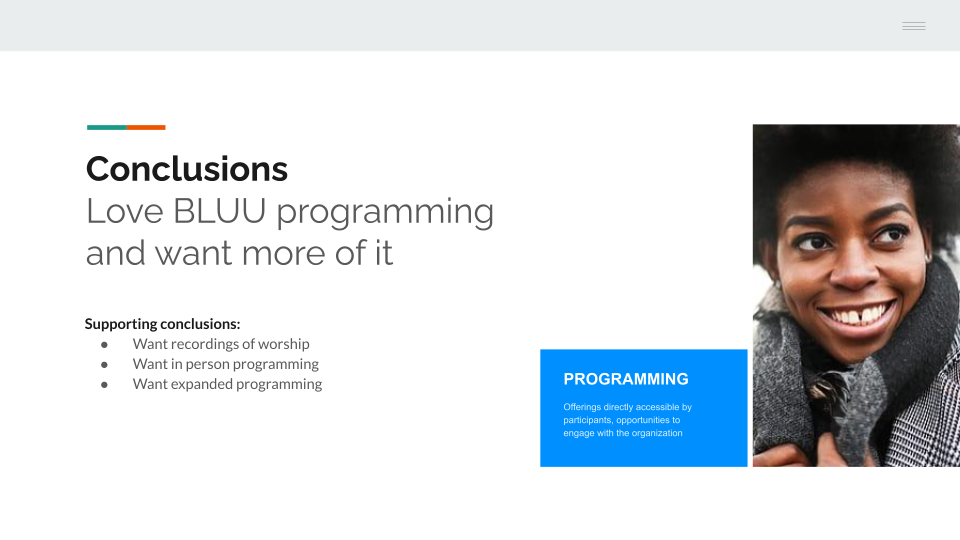
People enjoy how we gather. BLUU virtual worship continues to be a meaningful resource of spiritual sustenance for our community. Our community lives in many regions, so many of our community members would value having worship available to watch later if they can’t make a live, virtual service.
“There has been this beautiful sense of community and love in every service I’ve been able to attend,” one survey respondent said. “I have attended a number of faith communities over the years and this has been the only one that felt real.”
Another survey respondent said, “It really aligns with my current beliefs and where I am in life and it leaves room and supports growth. I love that it centers Black voices and our Black experiences in all its various forms. I do not have to dismiss my religious upbringings to grow in my spirituality and adopt new practices.”
While worship is a core part of BLUU’s offerings, our community wants us to expand our programming so folks can also gather in other ways.
BLUU Convenings and the Harper-Jordan Symposium were powerful experiences for people to embrace the liberating power of Unitarian Universalism through a Black-centered experience. Although we’ve understandably not been gathering during the COVID-19 pandemic, people miss our in-person gatherings.
What are BLUU’s opportunities for growth?
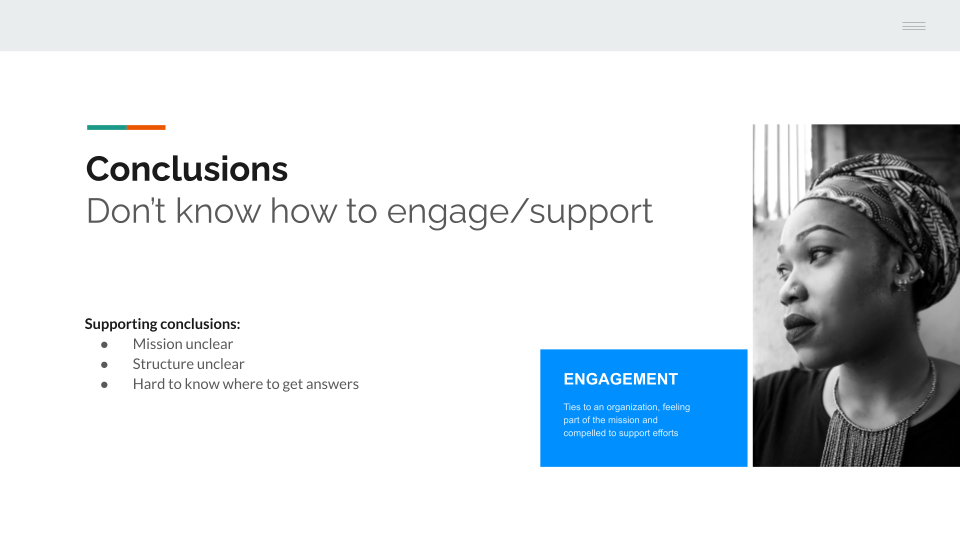
The survey makes it clear that we have work to do to make sure our community members know how to engage with us and know how to give us feedback. People in our community expressed not knowing how to get involved with BLUU and feeling frustrated they can’t get a response to their questions about our work or our programming. Folks also said they experience a lack of engagement with their ideas when they share them with BLUU leadership.
Others named positive interactions with individual leaders in BLUU that keep them engaged with BLUU despite dissatisfaction with overall community engagement.
“All these experiences, but especially the website content and application questions, put me under the impression that I am not welcome… like BLUU is a restrictive and exclusive club,” one survey respondent said. “And that is absolutely bizarre because everyone is so nice via Zoom and email. l decided to just be content participating in the online worship gatherings for as long they are offered.”
Community members also shared confusion about BLUU’s mission and vision. People were confused about both our organizational structure and what it means to be a BLUU member, or “BLUU Beloved.”
What’s next?
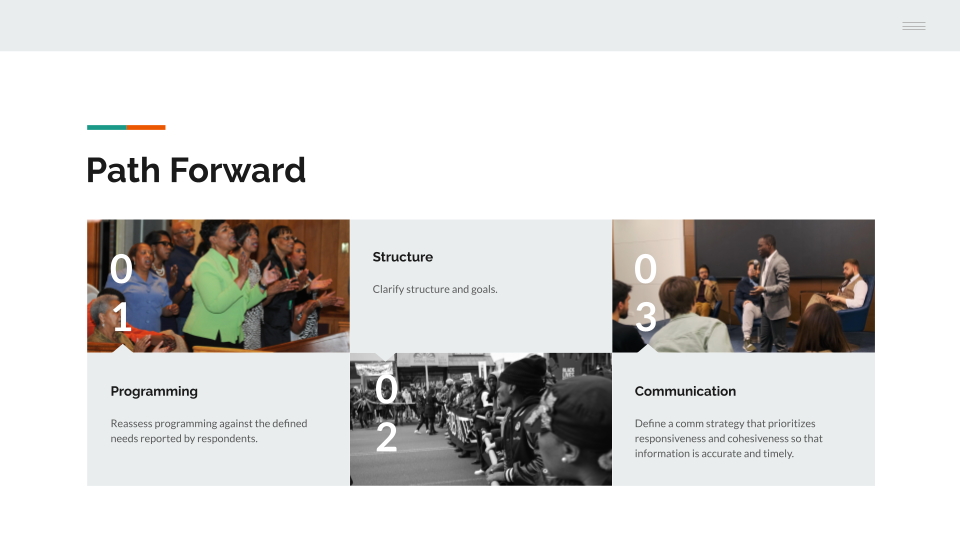
We have been working with AORTA, a movement-based organizational change organization, to do a deep dive into our organizational culture and how that culture contributes to some of the opportunities for growth named in our survey. We know that how we work and communicate together impacts how we show up for the wider BLUU community.
Our new Developmental Board Chair, Natasha Walker, is doing an organizational diagnostic. This will help us consider what structural changes need to be made so that our work is clearer internally and therefore easier to explain and engage people in more broadly.
After our organizational pause is complete, we will have a new structure and refined mission for our organization that we can share with our community. This clarity of our structure will create the container for expanded capacity, which will help us expand our programming.
After our structure and workflows are clear, we will design and implement a communications strategy that prioritizes community engagement. This includes finishing work on a simplified, streamlined website that includes password-protected recordings of worship for Black folks.
We plan to engage our community members soon in our restructure conversations. There is no BLUU without community! We’re taking time to be discerning about the containers we create for community engagement and will share opportunities to connect with the Organizing Collective Board soon.
Thank You to Everyone Who Responded to Our Survey
We are so grateful to everyone who filled out the survey. We don’t take you for granted–the survey wasn’t short and the questions asked respondents to be vulnerable.
We are learning from your feedback and integrating it into our restructure work. Thank you for your continued support and trust in us.
